Can I Use Store Bought Milk to Make Cheese
Some links below are affiliate links, earning us a commission at no additional cost to you, if you click through and make a purchase. You can trust that we recommend products that we use and love.
Can You Make Cheese From Store-Bought Milk?
by | Aug 14, 2021 | Cook, Dairy
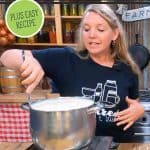
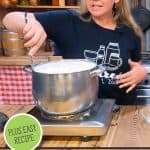
Have you ever wondered if you can make quality homemade cheese from store-bought milk? You can, but you must know about two very important steps first! Not everyone has access to raw milk, and even fewer own a dairy cow, so let me show you how to make delicious homemade cheese, using the RIGHT kind of milk from the grocery store.
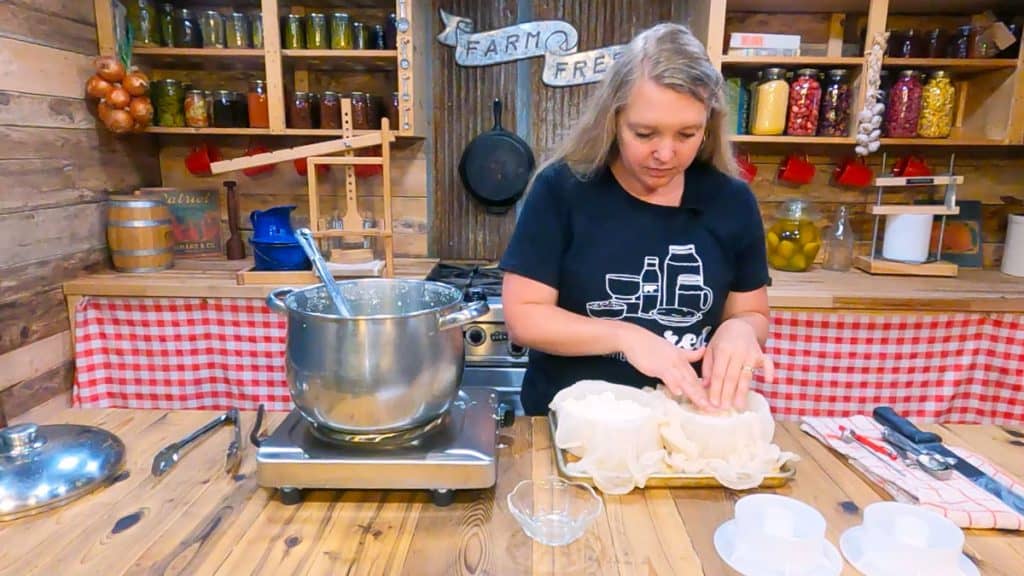
We've talked before about the anatomy of milk, what to do when you have too much milk, and even how to freeze or freeze-dry milk to preserve it for later, but have you ever wondered if you can make homemade cheese when you don't have access to raw milk?
I'm going to share with you the two tips you need to know to make delicious farmhouse cheese from store-bought milk. But don't worry, if you want to make cheese from raw milk, this method will work, too! In fact, read to the bottom of this post for an announcement on our upcoming dairy class!
Whether you have fresh raw milk straight from the farm, or you're using pasteurized milk from the grocery store, your family can still enjoy the delicious flavors of homemade cheese.
You won't believe just how easy it is!
The wait is over, grab the Practical Homemade Dairy Masterclass right here!
Types of Milk
You may not be aware of the vast number of milk varieties you can find at the grocery store. So what are the different kinds of milk?
- Pasteurized Milk
- Ultra-Pasteurized Milk
- Homogenized Milk
- Non-Homogenized Milk
- Pasture Raised
- Raw Milk
- Whole Milk
- 2% Milk
- 1% Milk
- Skim Milk
It's easy to get confused when looking through the cases and cases of milk, so let's break down which of these kinds of milk work and which don't work for making cheeses.
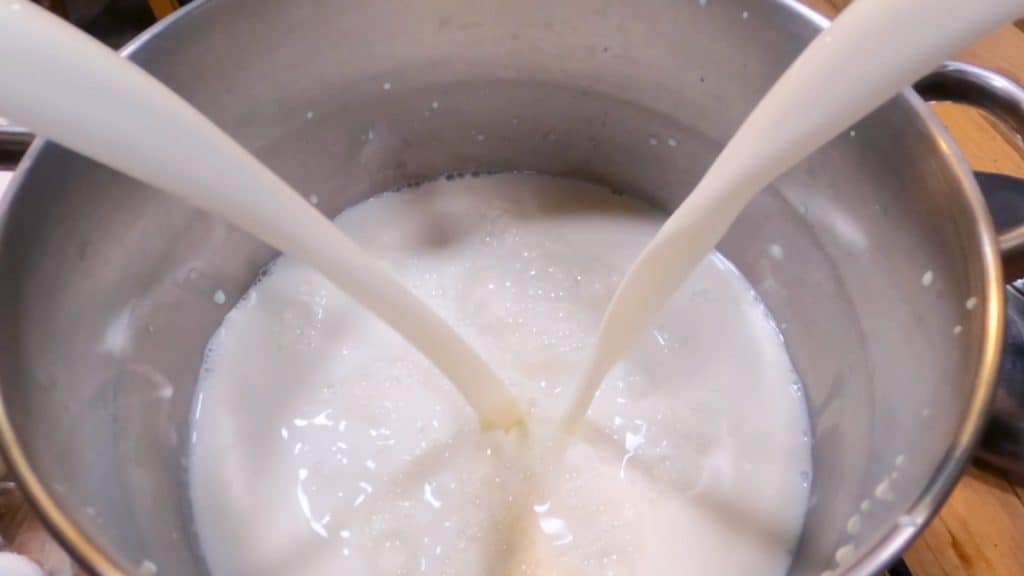
What Milk Can Be Used to Make Cheese?
When you're at the grocery store, you want to look for any milk that doesn't say "ultra-pasteurized". That leaves pasteurized, homogenized, non-homogenized, pasture-raised, and raw milk available to use for cheese making.
The best milk to choose, if you have it available to you, is raw, non-homogenized milk. It doesn't matter if it's cow's milk, goat's milk, or even sheep's milk. But raw is best if you can find it!
Furthermore, when making cheese, it's best to choose whole milk so it has as much fat content as possible. This will not only add delicious flavor to your cheese, but will yield a better end result. Skip the skim, 1%, and 2% milk!
Ultra-pasteurized, as well as all the other milk options listed above, can be used to make cultured dairy products such as kefir, buttermilk, and yogurt. But ultra-pasteurized doesn't work well for cheese making.
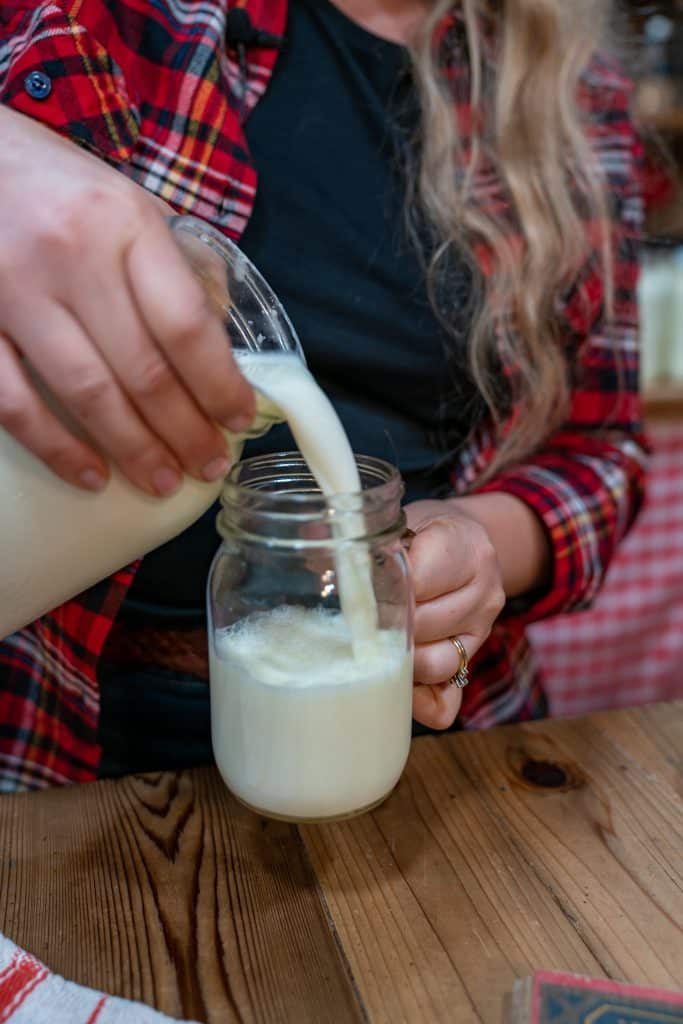
Where to Buy Good Quality Milk
- Grocery store
- Direct from the farmer
- Herd-share
If you can't find raw milk at the grocery store, or you'd like a different way to buy raw milk, you can often buy it directly from a farmer.
You can also join a herd share which is where you actually buy a portion of a herd and you pay for a weekly or monthly maintenance fee for the herd. As part-owner of a herd, this entitles you to a certain amount of milk each week.
Watch the video above to see just how simple it can be to pick up milk directly from a farmer! (Minute 6:55 of the video above.)
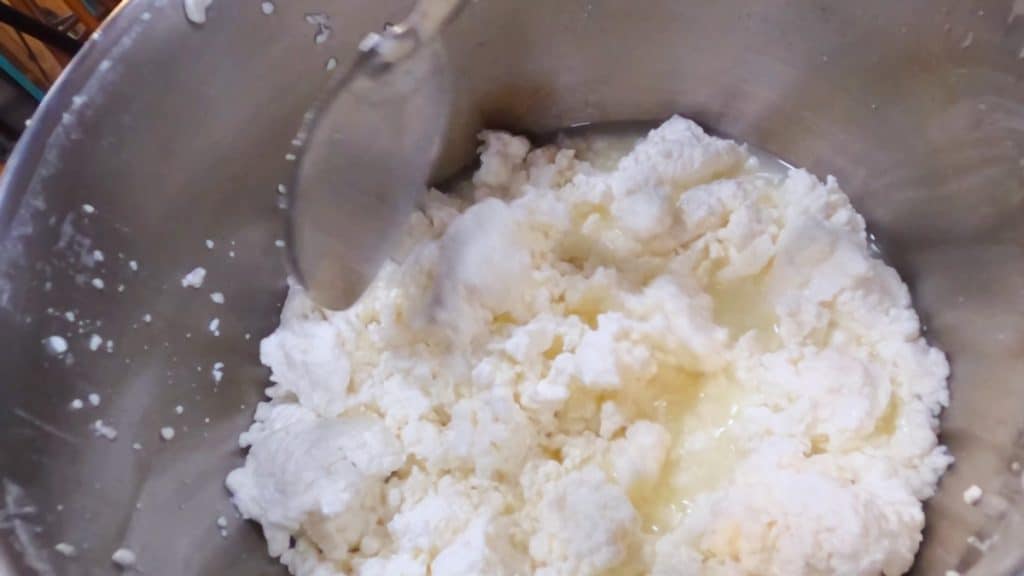
Making Cheese with Store-Bought Milk
When making homemade cheese with store-bought milk there are a few differences in the steps you'll need to follow. Most notably is that you'll need to add Calcium Chloride to make up for the calcium lost during the pasteurization process of the milk.
You'll also need to let the milk sit for about 5-10 minutes longer after adding the rennet for the curds to fully set up so you can get a "clean break".
Other than those two steps, there really isn't much difference between store-bought and raw milk when making cheese.
So, are you ready to make your own farmhouse cheese?
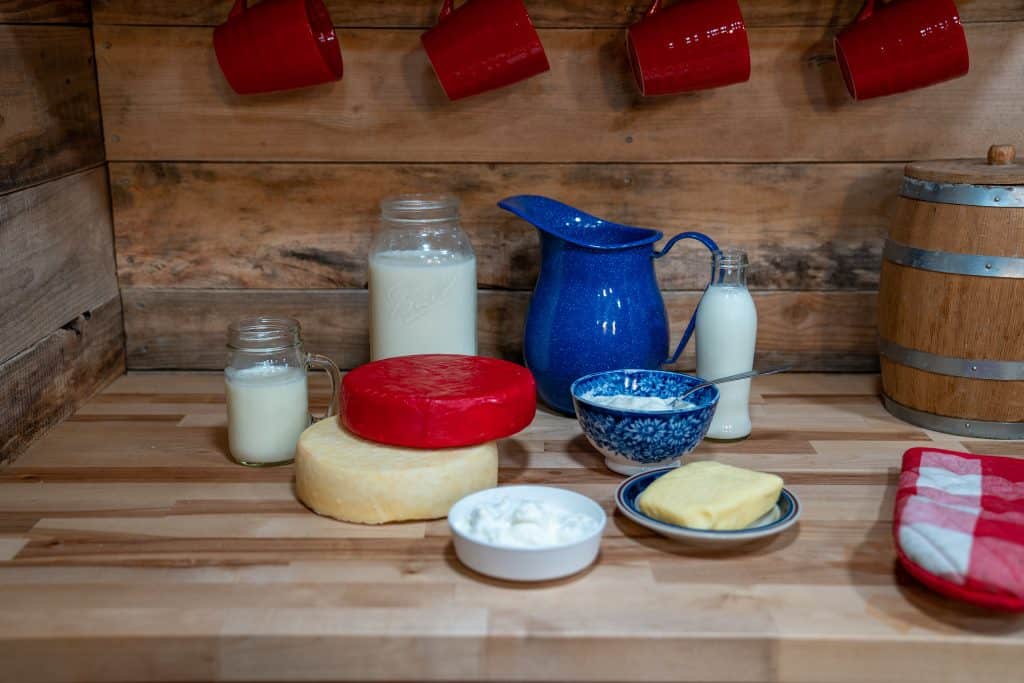
Practical Homemade Dairy
We're so excited to announce our newest masterclass! If making homemade dairy products is something you've wanted to do, I can't encourage you enough to grab your spot in our Homemade Practical Dairy Masterclass.
Other Posts You May Like
- Clabbered Milk (And the Anatomy of Raw Milk)
- How to Freeze Milk (Or Freeze-Dry Milk)
- Homemade Cultured Soft Herbed Cheese
- Making Homemade Dairy Products Practical
- How to Make Butter
Can I Use Store Bought Milk to Make Cheese
Source: https://homesteadingfamily.com/can-you-make-cheese-from-store-bought-milk/